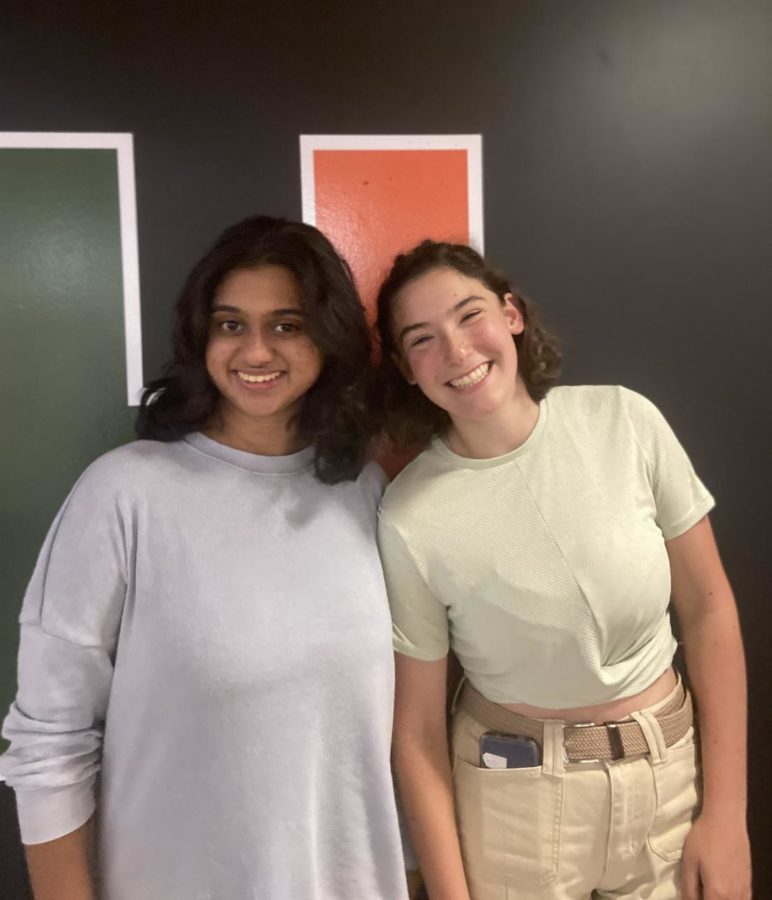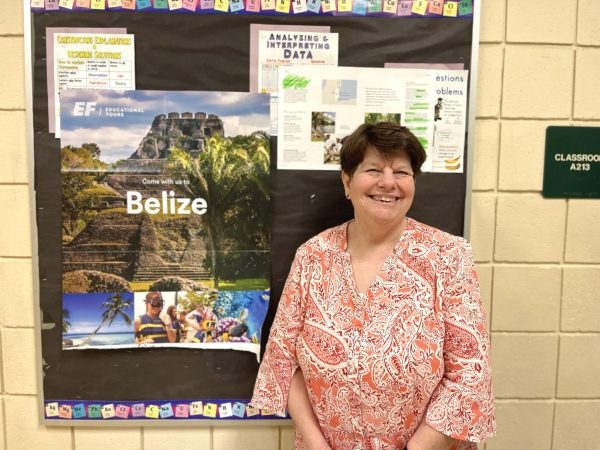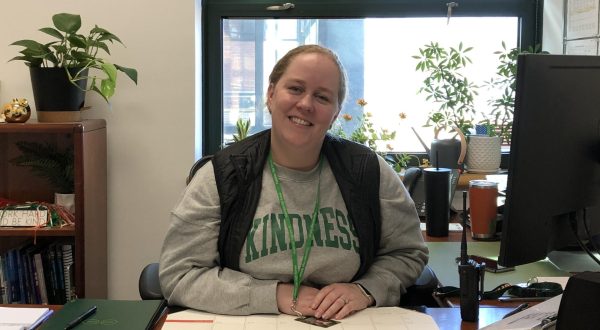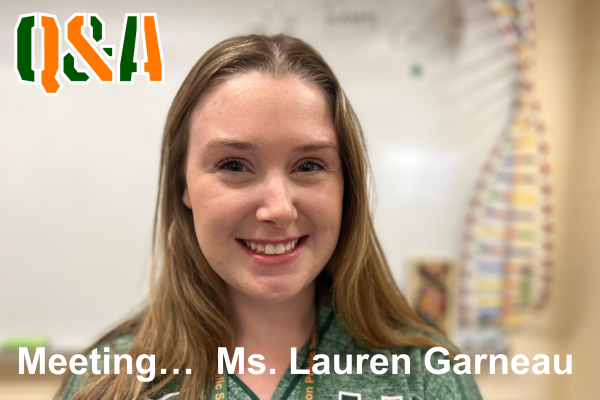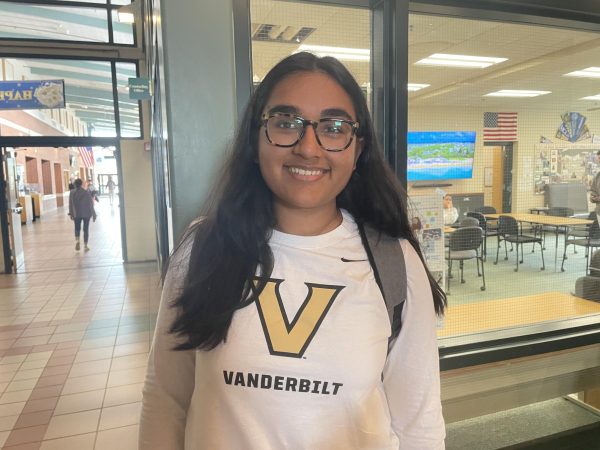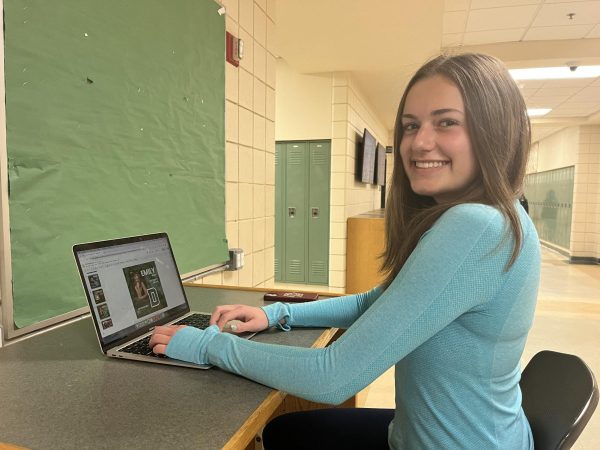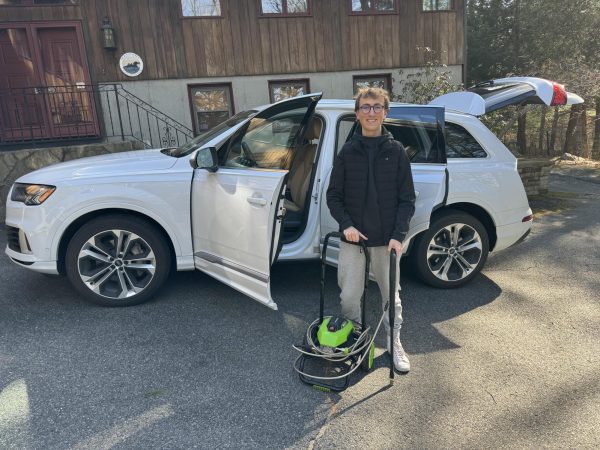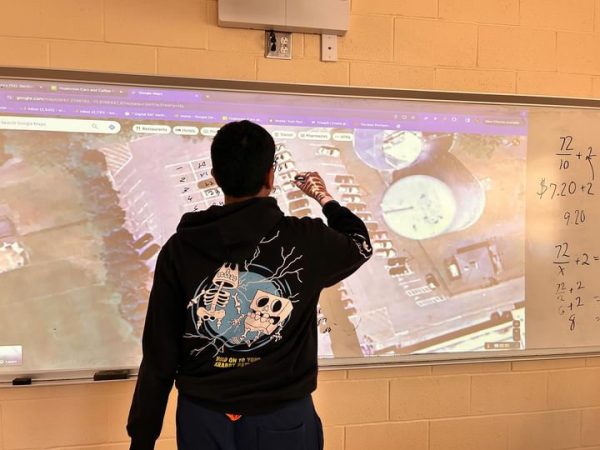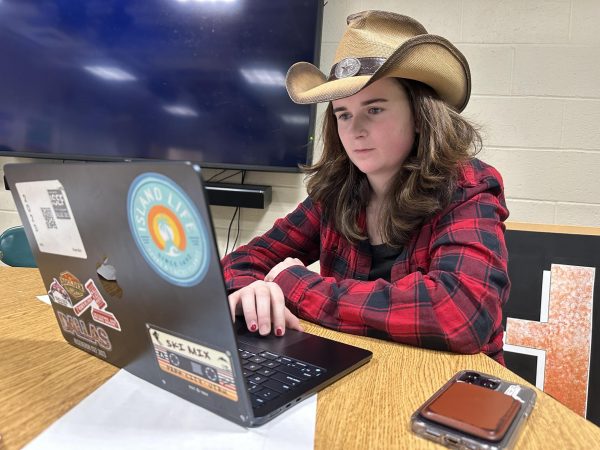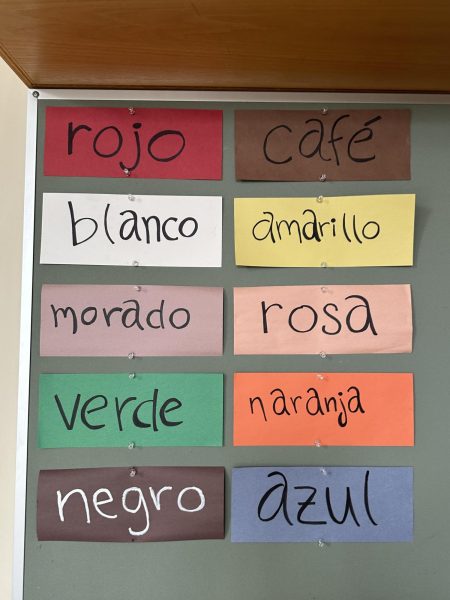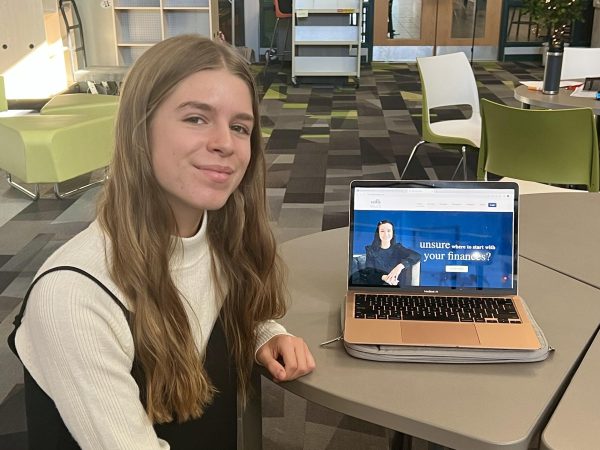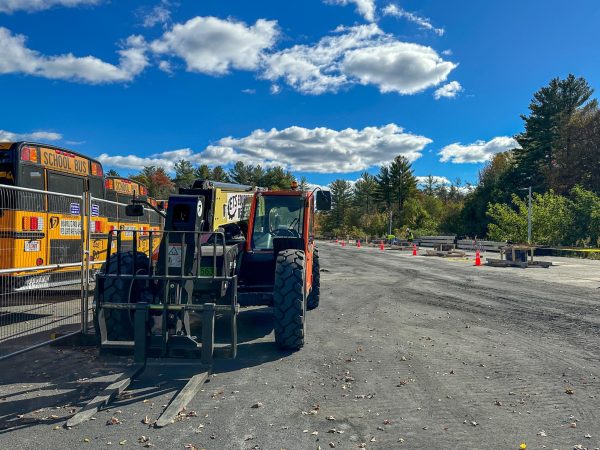Countries in a Classroom: A Look Into the 2022-23 Model United Nations Team
President Bhavya Ravi (left) and Member Camryn August (right) smile for a photo.
Model United Nations (MUN) is an educational simulation modeled after real United Nations meetings held at the New York City headquarters, as well as at the organization’s other offices in Geneva, Nairobi, Vienna, and The Hague.
President Bhavya Ravi provided a sneak peek into this year’s MUN team.
“MUN really gives you a chance to learn new perspectives on current events,” Ravi said. “I got into MUN after my older sister, Sreya, pushed me to go join. It’s super fun for me and I have a long way to go, but my public speaking has significantly improved. It’s something I want to stick with and I feel like I’ve made a kind of family within the team.”
MUN participants gain insights into diplomacy, international relations, and more current issues. Ravi strives to keep learning as the main priority.
“We try to represent what it’d be like to be in the United Nations and other groups’ organizations represent countries and delegates to solve real-world problems,” she said.
A wide array of topics are discussed and debated at meetings, most of them being political and economic. Team member Camryn August described some of the specific activities.
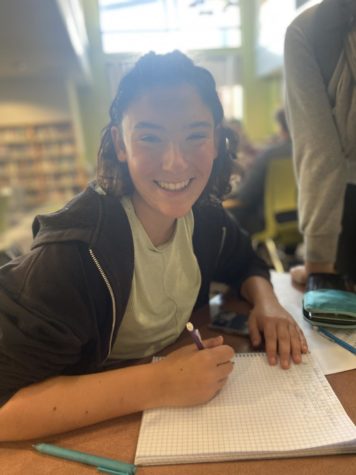
“Sometimes, you do fun, random things. One time, we debated on a [theoretical] situation where different countries formed a Pangea and which continent everyone should represent,” August said. “We also discuss real-world problems. For example, we have discussions about gun violence, school shootings, the climate crisis, and other topics like that.”
Since MUN stimulations put delegates into vastly different scenarios, often at random, they learn to think outside of the box and use innovative manners of writing and speaking.
“I like how MUN really gives you a chance to learn about new perspectives on current events. I wasn’t someone who usually read the news, but I started doing that because of MUN,” Ravi said.
“It’s also a great way to make new friends,” she continued. “It challenges you to support a new point of view that you may not believe in or make an argument for a topic that you may not even like. You might see one side of an argument, but you have to debate the other side and challenge yourself to step out of your comfort zone.”
Ravi explained that a normal MUN meeting is a simulation where a student acts as a delegate to discuss politics, social issues, or any other type of event. The delegates can pass notes and create allies and solutions.
“For a successful meeting, people should come to one or two solutions that a majority of the people agree with,” Ravi said.
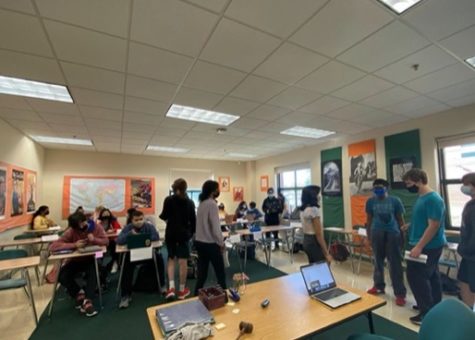
MUN isn’t a win-or-lose type of activity, but there are awards.
“There isn’t exactly winning in MUN. It’s just that your position paper helps come to a solution that everybody agrees with. At the end of conferences, people can get nominated for awards like Best Delegate, Best Representation of a Country, or Best Position Paper,” August said.
There are a good amount of people in the club, but it starts off slow.
“It’s a little difficult to say how many people are in MUN so far because so many people are trying different clubs at the beginning of the year. Usually, after a couple of weeks go by, we usually have about 15 to 17 super dedicated members that really give it their all,” said Ravi.
Want to be one of them? Head to room A204 on Tuesday afternoons. Meetings are held from 2:30 to 3:30 PM and are advised by Ms. Histen.

